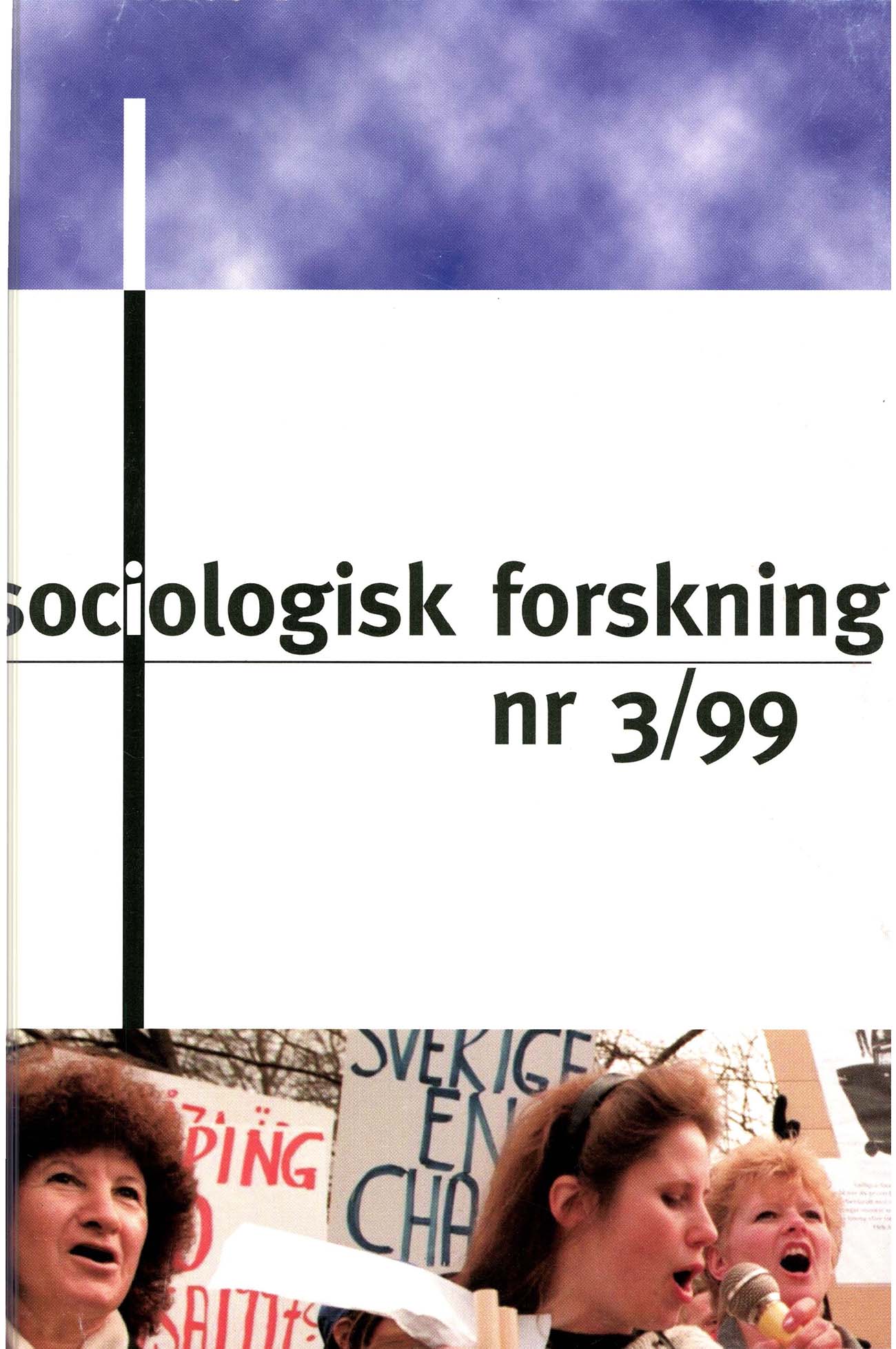Sveriges ekonomiska tillväxt och samhällsforskarnas objektivitet
DOI:
https://doi.org/10.37062/sf.36.18494Abstract
The economic growth of Sweden and the objectivity of social scientists
In an article in Sociologisk Forskning (2/98) Walter Korpi maintains that the claim by Swedish academic economists that Sweden’s economic growth has been slow compared to other rich countries is at odds with the empirical facts. Consequently, unless Sweden has grown slowly, an often cited basis for questioning the Swedish model is invalidated. Korpi also asserts that the discussion reveals a severe objectivity problem among Swedish academic economists. In this article Magnus Henrekson rebuts Korpi's allegations. The available facts show that Sweden was lagging behind relative to a broad aggregate ofother industrialized countries up to 1990, and this tendency is further reinforced if the 1990s is included in the comparison. As a corallary, it is an important task for future research to examine the factors that can potentially explain this unfavorable development. One hypothesis worthy of additional exploration is whether the Swedish model with its large public sector and strongly redistributive policies provides part of the explanation. As regards the objectivity problem in social science research in Sweden, Henrekson argues that, if anything, the discussion of Sweden’s growth problem shows that Walter Korpi is the one who has been lacking in scientific objectivity in this particular instance.
Downloads
Published
How to Cite
Issue
Section
License
All content in Sociologisk Forskning is published with immediate open access, under the Creative Commons license CC BY-NC-ND 4.0.
All content may be read, downloaded, shared and printed for non-commercial purposes, free and without fees. Contents may not be altered. When content is reused, author, source and a link to the copyright licence must be provided. The author retains copyright to their content. No publication fees are charged.





